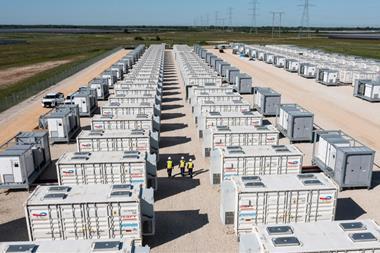GLOBAL – Investors in infrastructure have criticised the level of management fees, pointing out that they are higher than for real estate and other alternative investments.
A survey by Preqin, the alternative investments information provider, shows that 73% of infrastructure investors believe the level of management fees charged by funds is a key area where alignment of interests can be improved.
Despite investor demands for fund managers to move away from the traditional 2 and 20 private equity fee structure – considered by many to be less suited to the lower risk/return profile of infrastructure assets – more than half (61%) of 2012-13 vintage infrastructure funds and those currently being marketed charge an investment period management fee of 2% or more.
One US-based pension fund believes: “There is room for infrastructure to adopt more of a core real estate fund type pricing model”.
It adds: “Many infrastructure managers are still trying to adopt a private equity-like 2 and 20 structure, which is not realistic, given the expected returns of infrastructure.”
Of those infrastructure investors that took part in the survey, 49% disagree or strongly disagree that the interests of fund managers and investors are properly aligned when it comes to fund terms and conditions.
This percentage is significantly higher than for any other alternative asset class.
In particular, only 28% of institutional investors in private real estate funds disagree that fund manager and investor interests are properly aligned.
Furthermore, performance fees paid to infrastructure managers and the size of the fund manager’s commitment to their own funds are both viewed as key areas in need of improvement by 43% of respondents, while 41% believe there are issues surrounding hurdle rates that need to be addressed.
However, 69% of infrastructure investors surveyed have seen a change in infrastructure fund terms in favour of investors over the past year, showing that improvements have been made.
The proportion of investors dissatisfied with the alignment of fund manager and investor interests has also decreased, from 73% of investors surveyed in June 2010 to 49% of investors surveyed in August 2013.
But the survey report said: “Although investors are becoming increasingly satisfied with their fund manager relationships, more needs to be done to improve investor/fund manager relations.
“In such a competitive fundraising market, only those fund managers willing to improve their alignment with investors can hope to successfully raise capital.”
Nevertheless, investor appetite for infrastructure is strong, with 63% of institutional investors surveyed with an allocation to infrastructure expecting to commit more capital to unlisted infrastructure funds in the coming 12 months than in the previous year.
Additionally, 58% anticipate increasing their allocations to infrastructure over the long term, a higher proportion than for any other alternative asset class.
Elliot Bradbrook, manager of infrastructure data at Preqin, said: “Investors are increasingly unwilling to buy into the traditional 2 and 20 private equity fee structure when gaining exposure to lower risk/return profile infrastructure assets, and some fund managers are making concessions in this area to attract investor commitments.”
But he added: “Although improvements have been made in recent years, it is vital that fund managers are able to effectively articulate the reasoning behind the fees being charged, and continue to consider the appropriate structure of the terms and conditions employed in their funds in order to align interests effectively and achieve success in the competitive fundraising market.”
The survey was carried out in August in a series of detailed interviews with 450 active institutional investors across infrastructure, real estate, private equity and hedge funds.












